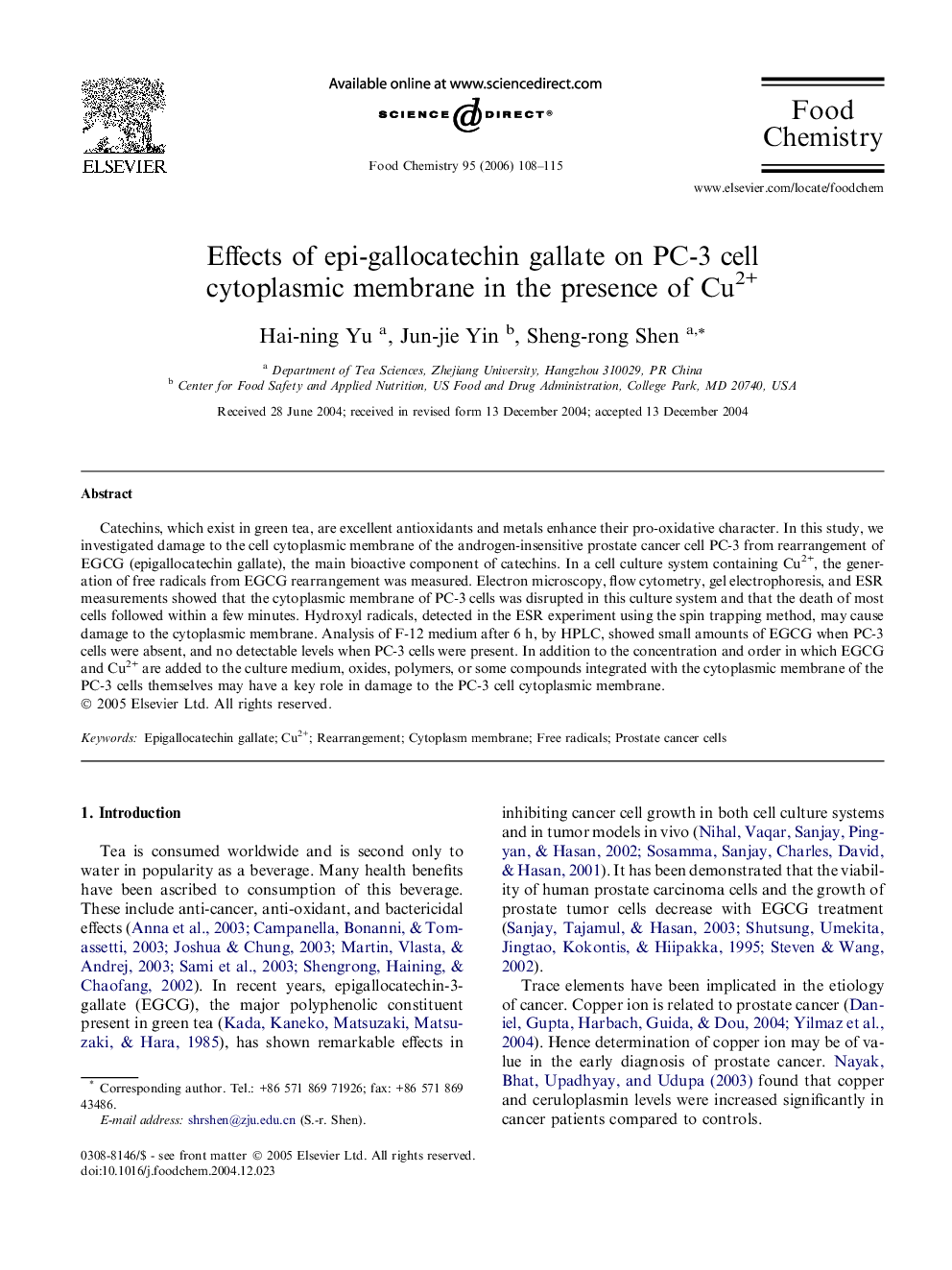| Article ID | Journal | Published Year | Pages | File Type |
|---|---|---|---|---|
| 1189644 | Food Chemistry | 2006 | 8 Pages |
Abstract
Catechins, which exist in green tea, are excellent antioxidants and metals enhance their pro-oxidative character. In this study, we investigated damage to the cell cytoplasmic membrane of the androgen-insensitive prostate cancer cell PC-3 from rearrangement of EGCG (epigallocatechin gallate), the main bioactive component of catechins. In a cell culture system containing Cu2+, the generation of free radicals from EGCG rearrangement was measured. Electron microscopy, flow cytometry, gel electrophoresis, and ESR measurements showed that the cytoplasmic membrane of PC-3 cells was disrupted in this culture system and that the death of most cells followed within a few minutes. Hydroxyl radicals, detected in the ESR experiment using the spin trapping method, may cause damage to the cytoplasmic membrane. Analysis of F-12 medium after 6 h, by HPLC, showed small amounts of EGCG when PC-3 cells were absent, and no detectable levels when PC-3 cells were present. In addition to the concentration and order in which EGCG and Cu2+ are added to the culture medium, oxides, polymers, or some compounds integrated with the cytoplasmic membrane of the PC-3 cells themselves may have a key role in damage to the PC-3 cell cytoplasmic membrane.
Related Topics
Physical Sciences and Engineering
Chemistry
Analytical Chemistry
Authors
Hai-ning Yu, Jun-jie Yin, Sheng-rong Shen,
